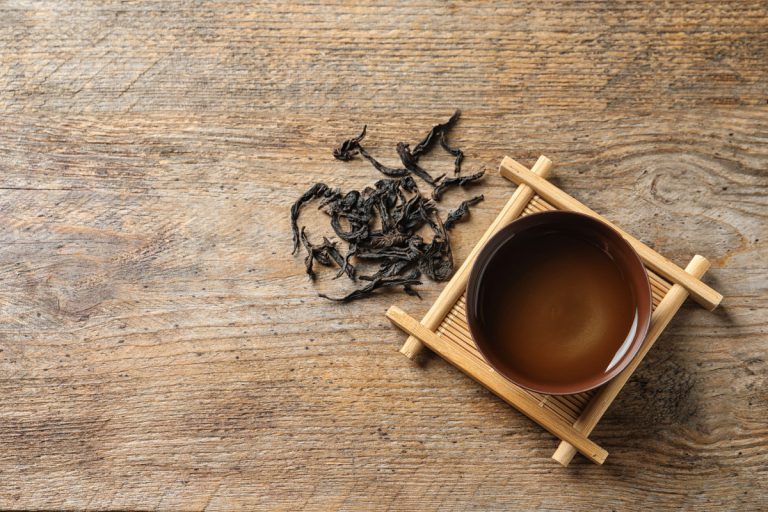Yancha tea, also known as rock tea, is a type of oolong tea that originates from the Wuyi Mountains in China.
Table of Contents
What is Yancha Tea?
Yancha tea is made from the leaves of Camellia sinensis plants which grow in the rocky soil of the Wuyi Mountains. This type of tea is known for its unique processing, which involves withering, rolling, and roasting the leaves over a charcoal fire. The roasting process gives yancha tea its signature smoky flavor and aroma, as well as its distinctive appearance, which ranges from dark brown to black.
Yancha tea is also known for its high level of oxidation, which gives it a rich and complex flavor. Depending on the variety, yancha tea can have notes of caramel, honey, orchid, and even chocolate. The tea is also prized for its mineral content, as the rocky soil of the Wuyi Mountains gives the tea a unique flavor profile that is not found in many other types of tea.
Cultural Significance of Yancha Tea
Yancha tea has a rich cultural significance in China, and is often associated with the Wuyi Mountains and the Fujian Province. The tea has been produced in the region for quite a long time, and is an important part of the local economy and cultural heritage.
In addition to its economic importance, yancha tea has also played a significant role in Chinese history and culture. During the Ming and Qing dynasties, yancha tea was often given as a tribute to the imperial court.
Varieties of Yancha Tea
There are many different varieties of yancha tea, each with its own unique flavor profile and aroma.
However, four of the most popular yancha teas are known collectively as Si Da Ming Cong, which translates to ‘Four Big Famous Bushes’, referring to famous oolong tea bushes from Wuyi, China.
- Bai Ji Guan – According to legend, a monk gave the name “bai ji guan” to this tea, which means “white rooster” or “white cockscomb” in English. The name was in memory of a brave rooster that passed away while defending its young from an eagle. The monk was moved by the rooster’s bravery and love, and he buried it. It is said that from the spot where the rooster was buried, a bai ji guan tea bush sprouted and grew.
- Da Hong Pao – This is one of the most famous and sought-after varieties of yancha tea, known for its complex flavor profile and high price, however, virtually all of the da hong pao sold on the market is made from clones, rather than the original tea bushes.
- Shui Jin Gui – The name Shui Jin Gui translates to “golden water turtle,” and is named after a mythical creature that is said to live in the Wuyi Mountains.
- Tie Luo Han – Tie Luo Han translates to ‘iron arhat’, as it is said to have originally been created by a monk.

